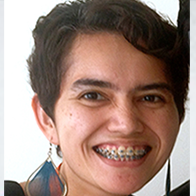Like most Muslim children, I was taught to read the Quran in Arabic when I was very young. The elderly lady who taught me lived down the street from my grandparents’ house, and my friends and I would reluctantly abandon our game of hopscotch or listen to New Kids on the Block on my uncle’s stereo system to make our way to her house nearly every afternoon.
She was generally patient in teaching us how to recite the Quran, only hitting our knuckles with a rotan when we mispronounced any of the tajwid.
She would however reprimand us that every time we recite the Quran wrongly, we would be punished in hell, with the angels on our shoulders keeping track in their little notebooks.
She would describe how every strand of hair that escaped our tudung equalled torture in the afterlife, that if we forgot to take ablution before class and touched the Quran without our air sembahyang, we have committed a dreadful sin.
One day, upon hearing that I have started to take piano lessons, she chided me.
I was informed that when my parents die, I would turn to music to relieve me of my sorrows and for every note I play on the piano, my parents would be tortured mercilessly by Malaikat Munkar and Nankir in their graves.
For eight-year-olds, my friends and I learned quickly, and at a very young age, that our religion is all about hellfire and brimstone.
When I reminiscence on those memories of childhood, I realised that although I was able to recite the Quran in a passable melodious voice since young, it was only in my early 20s that I actually read translations of the Quran in English.
I spent years reciting the Quran, word for word of what I cannot myself understand. I remember feeling very proud having my khatam ceremony, but now I cannot help but feel how foolish it was – to be able to recite and memorise but not understand most of what I was saying.
Sure, you learn a few words and you remember a few quotes, but until today, I cannot confidently say that I “read” the Quran.
I do read the translations more eagerly now, and somehow learned over the years that it was not a fear of being burned in hell that brought me to the Quran, though that was surely the beginning; but it was a pure burning desire to learn, to know more.
I do not consider myself religious, but I do want to understand my religion.
Yet somehow, others who underwent a similar upbringing did not come to the same conclusions.
Recently, it seems that our religious authorities prefer humiliation and scare tactics over education and engagement.
We have the Terengganu religious department coming up with the idea to parade men who do not perform the Friday prayers in hearses around town. How would they regulate this? Does every Muslim man need to bring a punch card to mosques now?
And would having more people at mosques equal to better understanding of the religion? Or merely a key performance indicator of sorts to superficially show how “religious” we are?
Perhaps it would be a better effort for the religious authorities to cater meals and invite the homeless around every mosque for lunch during Fridays, and invite the Muslim men among them to pray alongside the rest of the congregation.
Would not that show more compassion rather than humiliating fellow human beings?
Take the case of Nik Raina of Borders, as another example. This is a woman who was doing her job, and she was persecuted for simply, doing her job.
Last I read, she is still persecuted by the Federal Territories Islamic Religious Department, who has appealed against the Federal Territory Shariah High Court’s decision to discharge the case against her.
This case has gone on for years, and I cannot help but feel that this is merely prolonged humiliation of an individual to stroke another’s ego rather than upholding the religion itself.
Ironic how historically, the first verse revealed to our Prophet Muhammad was “Read. Read in the name of your Lord and Cherisher.” [96:1]
And here we are, persecuting a bookstore manager for selling a book.
Do we read but not understand?
Have we really lost compassion in our religion?
I personally think humiliating anyone would not bring justice that we mortals desire. Perhaps it is only our ego that is in the way.
Why are we so scared to allow discourse? Maybe by allowing the book to be read, many would come up with intelligent, evidence-based counter arguments to what Irshad Manji have stated in her book.
Perhaps by extending a hand of understanding, compassion, and mercy – there will be more people who are willing to learn about the religion, and if we care for numbers, embrace it. Maybe we can learn more about our own faith too, without being scared or silenced to not question what we, as human beings, can feel is not right.
At the very least, it will not scare an eight-year-old girl from stopping her piano lessons. – March 18, 2015.
* This is the personal opinion of the writer or publication and does not necessarily represent the views of The Malaysian Insider.


Comments
Please refrain from nicknames or comments of a racist, sexist, personal, vulgar or derogatory nature, or you may risk being blocked from commenting in our website. We encourage commenters to use their real names as their username. As comments are moderated, they may not appear immediately or even on the same day you posted them. We also reserve the right to delete off-topic comments